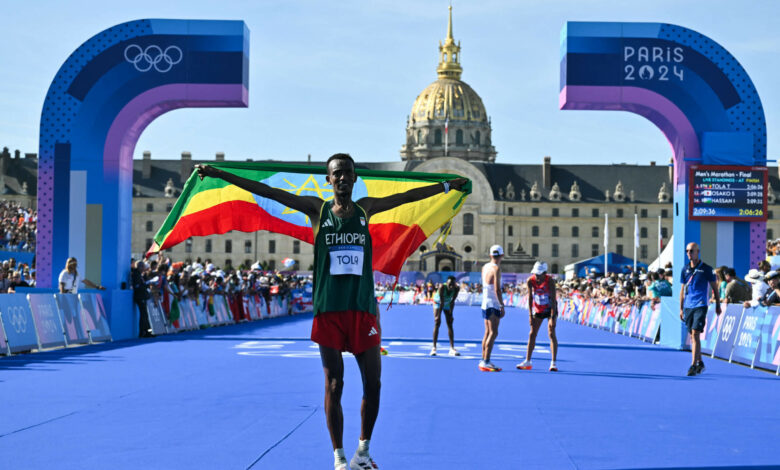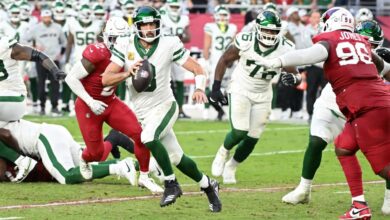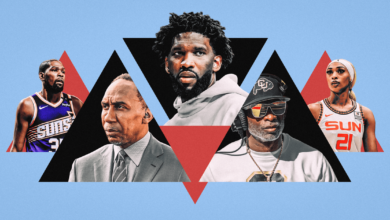Tola wins Olympic marathon for Ethiopia

They started slowly and came home quickly. And when the marathon was over and Ethiopia’s Tamirat Tola sprinted through the Plaza de la Invalides, the Olympic marathon proved once again why it can be the most exciting race of all.
On a bright Paris morning, 80 of the world’s best long-distance runners raced west to Versailles and back into the heart of the French capital. It was a scorching afternoon, with Tola leading the way for most of the race, finishing in an Olympic record time of two hours, six minutes and 21 seconds.
Tola remained one of the sport’s great late bloomers, a 32-year-old runner who has become particularly adept at excelling in warmer conditions. He claimed his first major victory at the 2022 World Athletics Championships in Eugene, Oregon, another summer race in uncomfortable conditions, and repeated it in New York last November, in unusually warm conditions.
On Saturday morning he won another of the sport’s most important prizes, and he did so with the aggressive style befitting a runner in top form.

Tola jumped forward and never looked back (Cameron Spencer/Getty Images)
After allowing little-known Italian Eyob Faniel to lead for much of the first half of the race, Tola made his first attempt just before the halfway point.
He stayed at or near the front for the rest of the way, and at 20 miles he accelerated and sprinted up a hill through the forest west of the city limits, creating a gap between him and the chasers that started at over 10 seconds and grew to 21 seconds by the end.
“In my life, this is my greatest achievement,” said Tola, whose victory secured a hallowed place in Ethiopian culture. In a society that reveres its distance runners, Tola’s name will now be uttered in the same sentences as Abebe Bikila, the first East African to win the Olympic marathon when he ran the distance barefoot in Rome in 1960. Bikila won again in Tokyo in 1964, beginning more than half a century of near-dominance of long-distance racing by East Africans.
Belgian Bashir Abdi won silver and Kenyan Benson Kipruto took bronze.
Eliud Kipchoge of Kenya, a two-time gold medalist and the only man to run the distance in under two hours, suffered cramps early in the race, dropped back and did not finish. It is likely an unfortunate end to a glorious Olympic career for the man widely regarded as the greatest marathon runner of all time.
There is a saying that is often bandied about in the French capital: “La victoire appartient au plus opiniatre” – Victory belongs to the persevering. Some give credit to Napoleon. Others give credit to Roland Garros, the French tennis great.
The words summed up Tola’s run perfectly. He filled it with wave after wave to clear the field until he didn’t have to sprint anymore, but he kept sprinting all the way to the end, raising his arms to the crowd at Invalides only in the last 200 meters.

Tola crossed the finish line in an Olympic record time (Andrej Isakovic/AFP via Getty Images)
The most remarkable thing is that Tola was not originally on the Ethiopian team. He was a reserve until Boston Marathon champion Sisay Lemma got injured. Tola had kept himself in shape and was ready to fill in.
“I trained hard so I could win,” Tola said. “I was fully prepared and knew I could make my dream come true.”
Many runners knew that Tola was capable of this, perhaps too well.
Connor Mantz, the rising American rider who finished eighth, 105 seconds behind Tola, saw the Ethiopian make his first attack just after the halfway point and joined him, certain that this was the move that would break the leaders away from everyone else.
But there were more moves to come. At the top of the next hill, Akira Akasaki of Japan, another young and up-and-coming distance runner, stepped on the gas pedal and began running at about a 4:40 per mile pace. When Tola then made the move that would win him the race at the 17-mile mark, Mantz’s legs were too battered to cover it, and Tola essentially buried everyone there with about 45 minutes to go. Tola ran the first half in one hour, four minutes, 51 seconds and the second half in one hour, one minute, 35 seconds. Woohoo.
“Should have been a little more conservative, but I wanted a shot at a medal,” Mantz said. “The fitness was definitely there today, but the execution could have used a little more work.”
Mantz’s good friend and training partner, Clayton Young, finished just behind him in ninth place in two hours, eight minutes and 44 seconds. Perhaps figuring the race would be run in warmer conditions rather than the mid-60s sun that prevailed, their coach had told them he thought a sub-2:09 would put them on the podium.

Abdi, Tola and Kipruto with their medals (Andrej Isakovic/AFP via Getty Images)
It wasn’t meant to be, not with Tola bringing all those rushes. Even his compatriot, Kenenisa Bekele, one of Ethiopia’s most decorated long-distance runners but at 42 nearing the end of his career, was all excited after finishing 39th.
“Fantastic,” Bekele said of Tola’s performance. “This is the best result.”
Tola seemed to know that the race was in the bag with about four miles to go. He turned his head at the 35-kilometer mark to see if anyone was catching him. He saw that the chasing group was about 100 meters behind him, a group of four including another compatriot, Denisa Geleta, Abdi, Kipruto and Akasaki, who were apparently locked in a battle for the final two spots on the podium.
He hardly looked back anymore. He didn’t have to.
“It’s not easy to win the Olympics,” he said, perhaps understating the past two weeks in Paris. “Not at all. I’m very proud, very happy.”
(Top photo: Andrej Isakovic/AFP via Getty Images)




